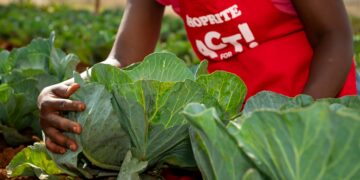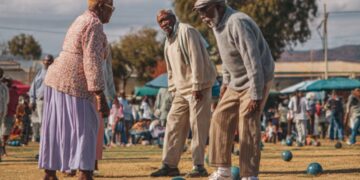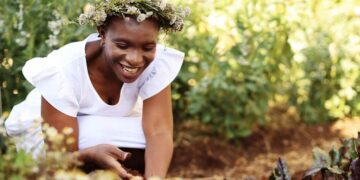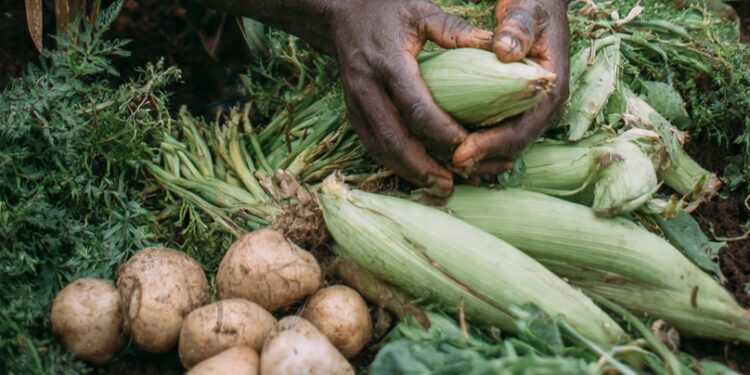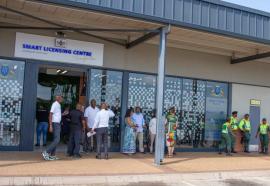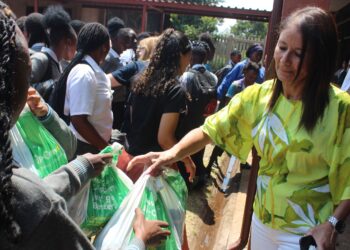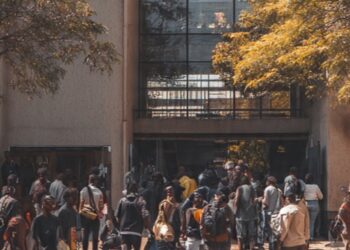On World Food Day, the South African Food Sovereignty Campaign (SAFSC) and the Climate Justice Charter Movement (CJCM) calls for a decisive break from a food system that destroys biodiversity.
We call for the championing of regenerative alternatives such as agroecology, as part of accelerating the deep just transition.
– Imagine if one morning you woke up to find that the fruits, vegetables, and grains that once filled your plate no longer existed in your local markets, not because of hunger, but because the very ecosystems that nurtured them had vanished. As the world commemorates World Food Day, the SAFSC reminds us that food is not merely a human necessity; it is the foundation of life’s interconnected web. Yet today, the global food system has become one of the leading drivers of biodiversity collapse, climate disruption, and ecological injustice.
With the world now on track to overshoot the 1.5°C threshold between 2028 and 2034, we face escalating climate shocks, from crop failures to collapsing water systems that threaten all life. This looming overshoot demands that South Africa urgently prepare itself through a rapid and just transition toward food sovereignty and building resilient, localised food systems capable of sustaining communities through deepening ecological crises. Therefore, the CJCM is advancing a bold call for a Climate Emergency Social Contract (CESC) which recognizes that South Africa’s political leadership has failed to treat the climate crisis with the urgency it demands.
The CJCM calls for a people and worker-driven social contract to place the nation on a climate emergency footing. The CESC envisions a triple transition guided by democratic systemic reforms which transforms our food, water, energy, and economic systems to confront the worsening polycrisis. It calls for a bottom-up convention that is driven by communities, workers, and civil society in order to co-create a new consensus for a liveable, just, and democratic future.
Through monocultures, chemical fertilizers and pesticides, genetic modification, and dependence on fossil fuels– industrial agriculture erodes soils, pollutes waterways, displaces pollinators, contributes to climate change and undermines the resilience of ecosystems. 160 scientists from 23 countries have issued a stark more that the Earth has reached a dangerous tipping point. Livestock expansion and intensive crop production contribute significantly to habitat destruction, deforestation, and species extinction, while corporate consolidation of land, seeds, and water in South Africa displaces small-scale farmers further narrowing the diversity of foods available to communities.
Agroecology lies at the heart of the SAFSC’s emancipatory praxis and response to this crisis. It is not just an agricultural practice but a political and ecological act of regeneration which restores soil life, re wilds landscapes, preserves indigenous seed diversity, and reconnects communities with their ecosystems. Within the People’s Food Sovereignty Act and the CJCM Feed Ourselves through Food Sovereignty Policy, agroecology is recognized as both a science and a movement that redefines production as ecological care. The urgency of the 1.5°C overshoot reinforces the need to accelerate this transition. It calls for the triple transition of South Africa’s food system:
1. Transforming industrial agriculture into commons-based agroecology;
2. Transitioning fishing systems toward small-scale and ocean commons;
3. Building community food systems that centre biodiversity, justice, and the Right to Food.
As part of its broader ecological and social justice work, the CJCM has launched a Rights of Nature campaign to recognise the rights of the more-than-human world; the rights of rivers and oceans, mountains and valleys, whales and ants, trees and seeds. The campaign seeks to confront ecocide, ecosystems collapse and the continued legacy of environmental apartheid. The CJCM will engage communities to develop biodiversity registers and protocols, as well as map South Africa’ sacred sites. It also seeks to develop an ecocide law for South Africa, and an urgent plan to restore estuaries and wetlands, a ban on trophy hunting, a ban on ocean trawling, a prohibition of extractivism on communal land, and a rehabilitation plan for abandoned mines, which pose serious risks to communities.
The CCM will engage with communities civil society through town halls, imbizo, digital awareness drives, multimedia tools, and public demonstrations, such as resisting oil and gas extraction in both land and sea. By amplifying local stories of environmental degradation, promoting legal recognition of nature, and building solidarity with international movements, the campaign aims to foster a society where ecosystems are protected not as resources, but as rights-bearing entities essential for sustaining life and food sovereignty.
Water lies at the centre of this struggle. Protecting and reclaiming our water commons is vital to ensuring food sovereignty, climate resilience, and ecological regeneration. The SAFSC and CJCM affirm that the fight for food is inseparable from the fight for water justice, and both must be grounded in community stewardship. The Emancipatory Futures Studies (EFS) project will host the “Commons in the Everyday” Conference (28-29 October 2025) which will be a space to explore how communities are reclaiming food, water, and energy commons as part of the deep just transition from below. The SAFSC and CJCM invite the public to join this dialogue on Zoom — register here and read more about the Commons in the Everyday on the EFS blog: https://emancipatoryfutures.co.za/blog/2025/july.
This World Food Day, the SAFSC and CJCM urge communities and food producers to take immediate action: to support local agroecological initiatives, protect seeds and water commons, challenge corporate monopolies, and advocate for democratic systemic reforms such as the Act and Policy. We call on communities across South Africa to join us in accelerating the deep just transition from below, through collective participation in the SAFSC, the Rights of Nature Campaign, and the Water Commons Campaign in order to build an ecologically just and life-sustaining future for all.
Soweto Sunrise News





